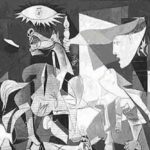Back to when there were no videogames: the story of the Sicilian “sciancateddu”
It is a pastime that in the last decades has perhaps lost vigor, replaced by other types of hobbies among kids, but which for those who have tried it at least once it remains an indelible childhood memory. Let’s find out its origins, etymology and rules
Long before Millennials and videogames, entire generations of Sicilian children spent their days in hobbies of all sorts, from the launch of a tuppètturu to the so-called sciancatèddu. To tell the truth, this game comes from afar and is still known throughout the world, from Brazil to Thailand, from Australia to Mozambique. And yet, in Sicily it has always been welcomed with such enthusiasm from generation to generation that it got a specific name in the local dialect.
According to the geographical areas, in fact, the sciancatèddu is known as ‘a tringa, ‘u pirùzzu, popò, ‘a marèdda,’ u tuòrnu, ‘a quadrella, ‘u quatratu,’ u campanaru, ‘a chiavuzza or ‘a pulcinedda, although it always remains the same. The etymology of the most common Sicilian variant, i.e. sciancatèddu, derives from the adjective sciancàtu, referring to those who move by holding on one foot and therefore having their center of gravity outside the hip. In addition to this, there seems to be a link with the ancient Greek verb skìzo, which meant to break, to tear.
The rules are the same everywhere: you draw a path on the ground consisting of 8-10 numbered squares, then you start throwing a stone on the square number 1. If you succeed, you can jump from square to square on one foot, without touching the box in which your stone is placed and turning on yourself when you reach the last square, to then complete the path backwards and grab your stone without falling from the ground, without falling. Once the round is finished, you try to throw the stone on square number 2 and so on, until you make a mistake or win. It is essential to never touch any edge of the squares, to not fall down and to place both feet on the floor at the same time only in the case of two squares placed next to each other.
Today this game does not fascinate people as much as it once did, as it has been replaced by other types of hobbies. Nevertheless, for those who have tried it at least once, it remains an indelible childhood memory.
Translated by Eva Luna Mascolino



